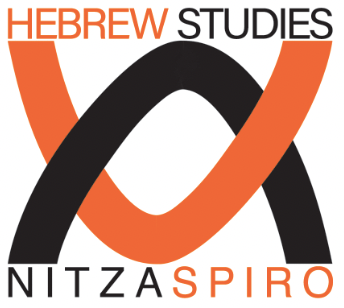If you are a non-Jewish person who studies Hebrew anywhere, if you wish to continue your own perspective, please send us your comments.
In the last issue of Alondon, the Hebrew magazine published in London, the following article describing one of our beginners Hebrew courses appeared. If you hesitate where your friends might learn Hebrew, you might be inspired.
There are also scores of Jewish students in all our classes but this particular article chose to concentrate on the phenomenon of non Jews keen to study the languages.
Here is the translation:
The caption inside the article says: A classroom at the Spiro Ark
The title of the article: Hebrew for non Jews
The caption under the picture says: Do not think that only Jews study Ivrit.
In the classes and in private lessons, you will find British Ambassadors to Israel and Madona's children as well.
By Udi Glazer
"I do not have a family in Turkey... I have a family in Australia" says Theodora Petru (30) when her turn came to describe her family, in a Hebrew lesson at the Spiro Ark educational charity. Petra is married to Justin (a Jew). They live in White Chapel and love so much both the language and Judaism: - "Even if we were to split up - my husband and I - I would have nevertheless converted as Judaism suits me and my beliefs. The Hebrew language is important in order to understand the prayers and the reading of the Torah."
It is hard to estimate the exact percentage of students of Hebrew in London who are not Jewish but in order to understand the general picture it is enough to get to visit one of the many Hebrew courses for beginners at the Spiro Ark. For example, on this particular course only two of the ten students were Jewish and out of those two only one was born a Jew.
This causes at times an amazing confusion: as this course takes place at a class room in South Hampstead Shul, people in charge of organizing the evening prayers often come in and ask to borrow a few male students for completing the MINYAN.
The reasons of what brings each such individual to study Ivrit are varied. Dr Yaya Obozoah, a Christian Clergyman of Nigerian origin, fell in love with the language. He holds a number of jobs, amongst which he is a lecturer of theology in the Christ the Redeemer and is also a voluntary priest.
In the framework of his work he reads many theological texts like commentaries by Rashi and the Talmud itself. But he is keen to read such primary sources in the original language. What motivates him to continue learning the language until he reaches fluency in speaking, reading and writing is the fact that he hopes to get involved in research work at universities in Israel. His interest in the Hebrew language, stems according to him from his deep roots in Christianity. "God causes you to love Jesus and Jesus makes you love Israel." At the first opportunity I will fulfill my dream and go to Israel.
A chance meeting with a Jewish colleague in Paris prompted Haseldine (26) who lives in South London and works as a financial regulator in a bank to study Hebrew. He has studied philology in Cambridge and despite his young age he is multi lingual and speaks fluently many languages amongst which are: French, German, Spanish and Latin.
Another student tells me: Three years ago I went to try and learn the language at an Ulpan in Tel Aviv. There I was astonished to discover that I was not the only non Jew there. In an excellent accent and fluently he tells me: "The thing which surprised me most of all was the number of Japanese girls who found themselves Israeli boyfriends."
None of the entire group (that also included Poles, English, Greeks and South Africans) felt that the security situation in Israel was a deterrent for them.
A Jewish student in this group said that the negative attitude of the media about the flotilla could have put him off studying the language but he makes a definite distinction between politics and the language and even on politics he often does not have an opinion (because he is not sure what the truth is).
Philip (an English Christian) told me: People always ask me, both Jews and Christians why I learn Hebrew. In fact the security guards at Ben Guian airport often ask me that question even more emphatically than anyone else. It always creates an amusing exchange. But in reality, is there an answer to this question? Is it at all necessary to have an answer? No one ever asks me why I learn Spanish or French. Philip says that it is easier to study Hebrew than say German. "Perhaps Biblical Hebrew is slightly more difficult but modern Hebrew is so easy and enjoyable to study in a group and so useful too."
Sometimes Richard practices his reading on trying to find familiar words in Alondon.
Ambi is a member of the Kabbala centre in the West End and because she wishes to get deeper into mysticism, she feels she needs to learn the language and be inspired by it as it is the universal aspect of Judaism...



